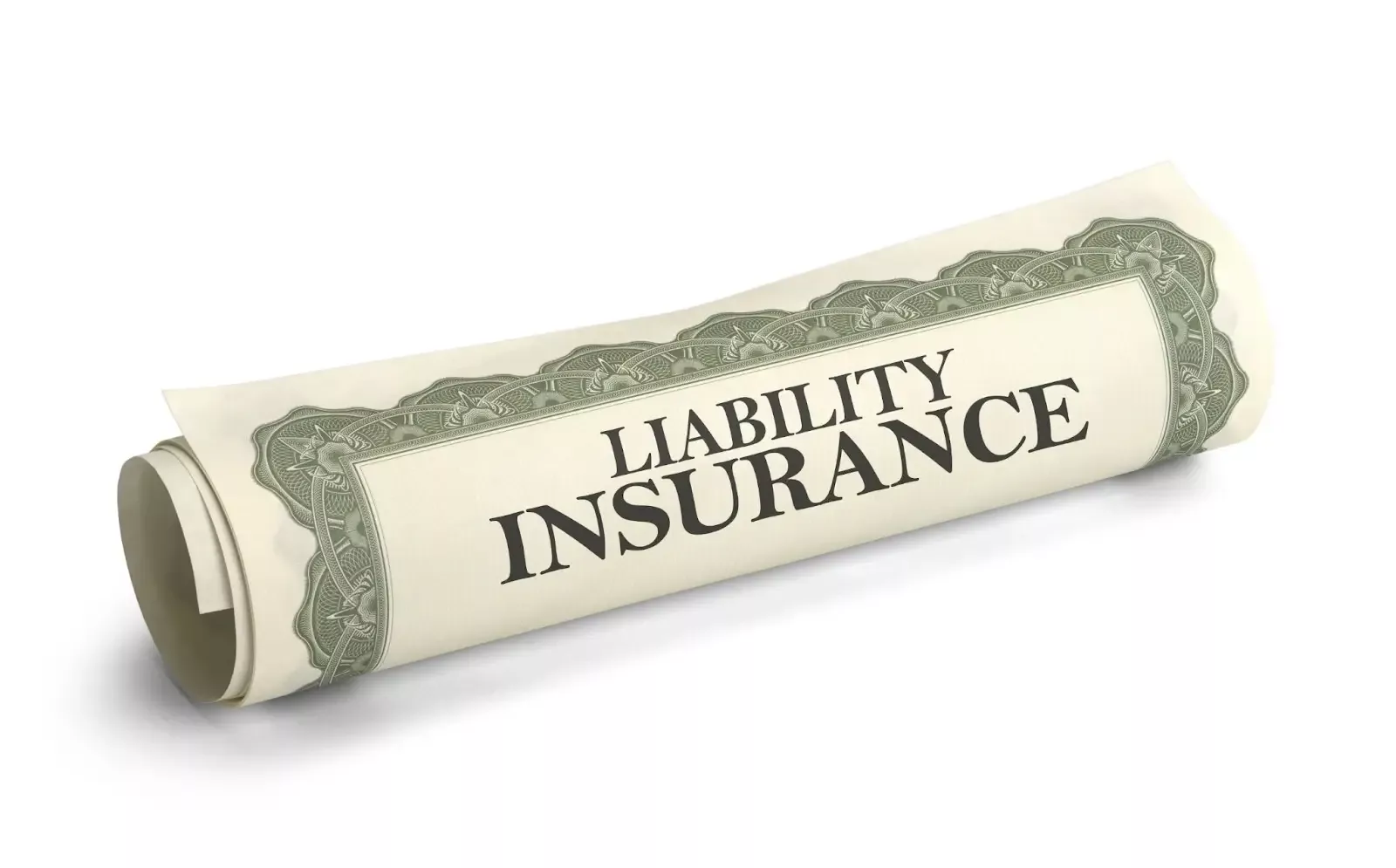When is Liability Insurance Needed For My Business?

Have you ever worried about a customer getting hurt on your property or a product malfunction causing harm? These situations, while hopefully rare, could result in a lawsuit against your business. The financial burden of legal fees, court costs, and potential damages could be devastating. This is where liability insurance comes in – it's a crucial shield for your business.
In this article, we’ll explore the benefits of liability insurance and how to determine when to get one for your business.
What Is Liability Insurance?
Liability insurance is a type of business insurance specifically designed to protect your company from financial losses arising from third-party claims. These claims can involve bodily injury, meaning someone gets hurt because of your business activities, or property damage, where your business operations cause damage to someone else's property.
How Liability Insurance for Businesses Works
Liability insurance works in two key ways to shield your business:
Covers legal costs
If a lawsuit is filed against your business, the insurance company steps in. They'll pay for lawyer fees, court costs, and any settlements reached, up to your policy limits. This protects your business savings from being depleted by legal battles.
Pays awarded damages
Let's say the court rules in favor of the injured customer in the restaurant scenario. The insurance will cover the compensation awarded to them, typically up to your policy limits. This prevents your business assets from being seized to pay the damages.

What Liability Insurance Do I Need?
The type of liability insurance you need depends on your specific business and the risks it faces. But here's a breakdown of the most common type that most businesses can benefit from:
General liability insurance
This is the workhorse of business liability coverage. It covers bodily injury and property damage arising from your everyday operations, products, or services.
Here are some examples to illustrate when general liability insurance would come into play:
A customer slips and falls on a wet floor in your retail store and breaks their arm. General liability insurance would cover their medical expenses and any legal fees associated with the lawsuit.
A product you sell malfunctions and injures a customer. General liability insurance would help cover the costs of the lawsuit and any damages awarded.
However, depending on your industry, you might need additional coverage alongside general liability insurance:
Professional liability insurance (errors and omissions insurance)
This is essential for businesses offering professional services like architects, accountants, or consultants. It protects you from lawsuits claiming negligence or errors in your professional services.
Product liability insurance
If your business manufactures or sells physical products, this specific insurance safeguards you from lawsuits arising from product defects causing harm.
Workers' compensation insurance
This is mandatory in most states and covers medical expenses and lost wages for employees who get injured while working.
The best course of action? Consult with a qualified insurance professional. They can assess your business's unique risk profile and recommend the most suitable liability insurance combination to keep your company financially protected.

How To Determine When Liability Insurance Is Needed
Not every business operates the same way, and so not every business needs exactly the same insurance coverage. But when it comes to liability insurance, it's generally better to be safe than sorry. Here are some key factors to consider when deciding if your business needs liability insurance:
Customer Interaction
The more customer traffic your business has, the higher the chance of slip-and-fall accidents or other incidents. Retail stores, restaurants, gyms, and salons are prime examples. Even a seemingly minor accident can lead to a lawsuit, so having liability insurance provides valuable protection.
Products Sold
If your business sells physical products, you need to consider product liability. A faulty product can cause injuries, and if a customer sues, liability insurance can be a lifesaver.
Rented Property
Operating out of a leased space? Standard renters insurance typically doesn't cover accidental damage caused by your business. Liability insurance can protect you from claims by the property owner for any unintentional damage you cause.
Professional Services Offered
Do you provide professional services like engineering, accounting, or consulting? Liability insurance safeguards you from lawsuits alleging negligence or errors in your professional services. This is often called professional liability insurance or errors and omissions insurance.
Even if your business doesn't perfectly fit into these categories, it's still wise to consult with an insurance professional. They can help you identify potential risks specific to your industry and recommend the most appropriate liability insurance coverage for your needs. Remember, a lawsuit, even if unfounded, can be expensive to defend. Liability insurance offers peace of mind by ensuring you're financially protected.
How Much Liability Insurance Do I Need?
So, what does liability insurance cover? Determining the ideal amount of liability insurance coverage for your business is like finding the right fit in a new pair of shoes – it needs to be comfortable (affordable) yet provide ample protection (coverage). Unfortunately, there's no one-size-fits-all answer, as the optimal coverage amount depends on several factors unique to your business:
Industry: Certain industries are inherently riskier. For example, a construction company would likely need more coverage than a bakery.
Business Size: Generally, larger businesses with more employees and greater potential for lawsuits might require higher coverage limits.
Potential Lawsuit Value: Consider the typical costs of lawsuits in your industry to estimate the appropriate coverage amount. A restaurant in a busy city might need more coverage than a one-person consulting firm.
Here's the good news: you don't have to navigate this alone! Consulting with an experienced insurance professional is the best way to determine the most suitable liability insurance coverage level for your business. They can assess your specific risk profile, industry trends, and potential lawsuit values to recommend an optimal coverage amount.
What Is Required of a Business That Applies for Liability Insurance?
Applying for liability insurance is a straightforward process. Typically, businesses will need to provide the following information:
Business details: This includes your company name, address, type of business, and years of operation.
Operations overview: Briefly describe your business activities, products or services offered, and number of employees.
Claims history: If your business has any prior insurance claims, you'll need to disclose them.
Financial statements: Depending on the insurance company, you may need to submit basic financial statements to assess your business's overall health.
The insurance company will use this information to evaluate your risk profile and determine an appropriate premium for your liability insurance policy.
Does Every Business Need General Liability Insurance?
While not every business is legally mandated to carry general liability insurance, it's highly recommended for most businesses. Here's why:
Lawsuits can be expensive
Even a frivolous lawsuit can incur significant legal costs. Liability insurance protects your business from having to shoulder these burdens alone.
Peace of mind
Knowing you have liability insurance in place allows you to focus on running your business without the constant worry of lawsuits jeopardizing your financial stability.
Unexpected incidents
Accidents can happen anytime. Liability insurance safeguards your business from the financial repercussions of unforeseen customer injuries or property damage.
Business Liability Policy Coverage Limits
Business liability insurance policies typically encompass various aspects, providing coverage for:
Liability and Medical Expenses
This covers medical expenses for injuries sustained by third parties on your property or due to your operations (e.g., a customer slipping and falling in your store).
Property Damage
The insurance covers damage to property belonging to a third party caused by your business activities (e.g., accidentally damaging a rented office space).
Legal Defense Costs
If a lawsuit is filed against your business, the insurance company will cover legal fees and court costs, up to the policy limits.
It's important to note that policy limits will vary depending on your coverage selection.
Consulting with an insurance professional can help you determine the most suitable coverage limits for your business needs.
What Is Not Covered by Liability Insurance?
Liability insurance provides valuable protection, but it's important to understand its limitations. Here are some common exclusions:
Work-related injuries or illnesses
Workers' compensation insurance is specifically designed to cover these situations.
Property damage to business vehicles: Separate commercial auto insurance is needed for damage to your company vehicles.
Employment-related claims
Issues like wrongful termination or workplace discrimination are not covered by liability insurance.
Mistakes in professional services
For businesses offering professional services, professional liability insurance (errors and omissions insurance) is necessary to protect against claims of negligence or errors.
By understanding what's not covered, you can ensure you have a comprehensive insurance plan in place to safeguard your business.

Does My Business Need Liability Insurance?
If your business interacts with the public, sells products, rents property, or offers professional services, then liability insurance is essential. It acts as a financial shield, protecting your company's future from the potentially devastating consequences of lawsuits.
Consider these questions to help you decide:
Do I have frequent customer traffic in my business?
Do I sell physical products?
Do I operate out of a leased space?
Do I offer professional services?
If you answered yes to any of these questions, consulting with an insurance professional about liability insurance is highly recommended.
Where Do I Get Liability Insurance?
Don't leave your business exposed! Liability insurance is an essential investment that safeguards your company's financial future.
Here's where Hotchkiss Insurance comes in: As a leading Texas insurance agency, Hotchkiss Insurance specializes in helping businesses secure the right coverage. Their experienced agents will work closely with you to understand your specific needs and recommend a customized liability insurance policy that perfectly fits your business.
Don't wait until a lawsuit strikes. Contact Hotchkiss Insurance today in Houston, Dallas, San Antonio, Fort Worth, or Lubbock, TX. Get a free quote and ensure your business has the protection it deserves.